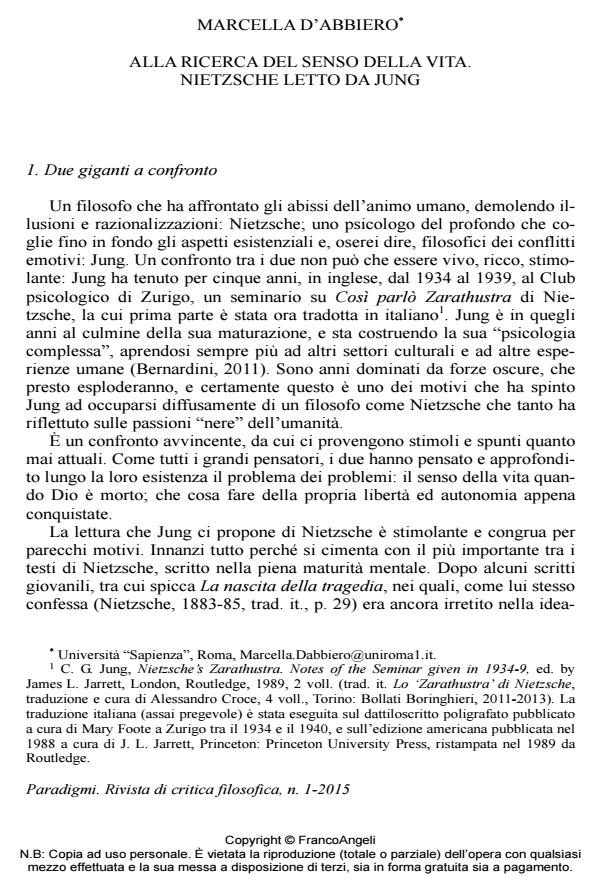Looking for the Meaning of Life. Jung on Nietzsche
Journal title PARADIGMI
Author/s Marcella D'Abbiero
Publishing Year 2015 Issue 2015/1
Language Italian Pages 18 P. 179-196 File size 72 KB
DOI 10.3280/PARA2015-001012
DOI is like a bar code for intellectual property: to have more infomation
click here
Below, you can see the article first page
If you want to buy this article in PDF format, you can do it, following the instructions to buy download credits

FrancoAngeli is member of Publishers International Linking Association, Inc (PILA), a not-for-profit association which run the CrossRef service enabling links to and from online scholarly content.
The essay analyses a commentary that Jung wrote in English, from 1934 to 1939, concerning Nietzsche’s Thus Spoke Zarathustra (a partial Italian translation of the commentary was published in 2011). The depth of the Jungian interpretation is revealed, showing how the text had been analyzed in all its folds. The author of the essay notes how Jung recognizes the philosophical-existential issues that bring Nietzsche to the theory of the Übermensch, and how Jung imputes numerous aporias of the Nietzschean text to having mixed a "numinous" idea like the Übermensch to illuministic-rational categories. The author sees in the devaluation of rational categories and of intersubjectivity a point in common between Nietzsche and Jung.
Keywords: Freud, Intersubjectivity, Jung, Nietzsche, Onnipotence, Sacred.
Marcella D'Abbiero, Alla ricerca del senso della vita. Nietzsche letto da Jung in "PARADIGMI" 1/2015, pp 179-196, DOI: 10.3280/PARA2015-001012